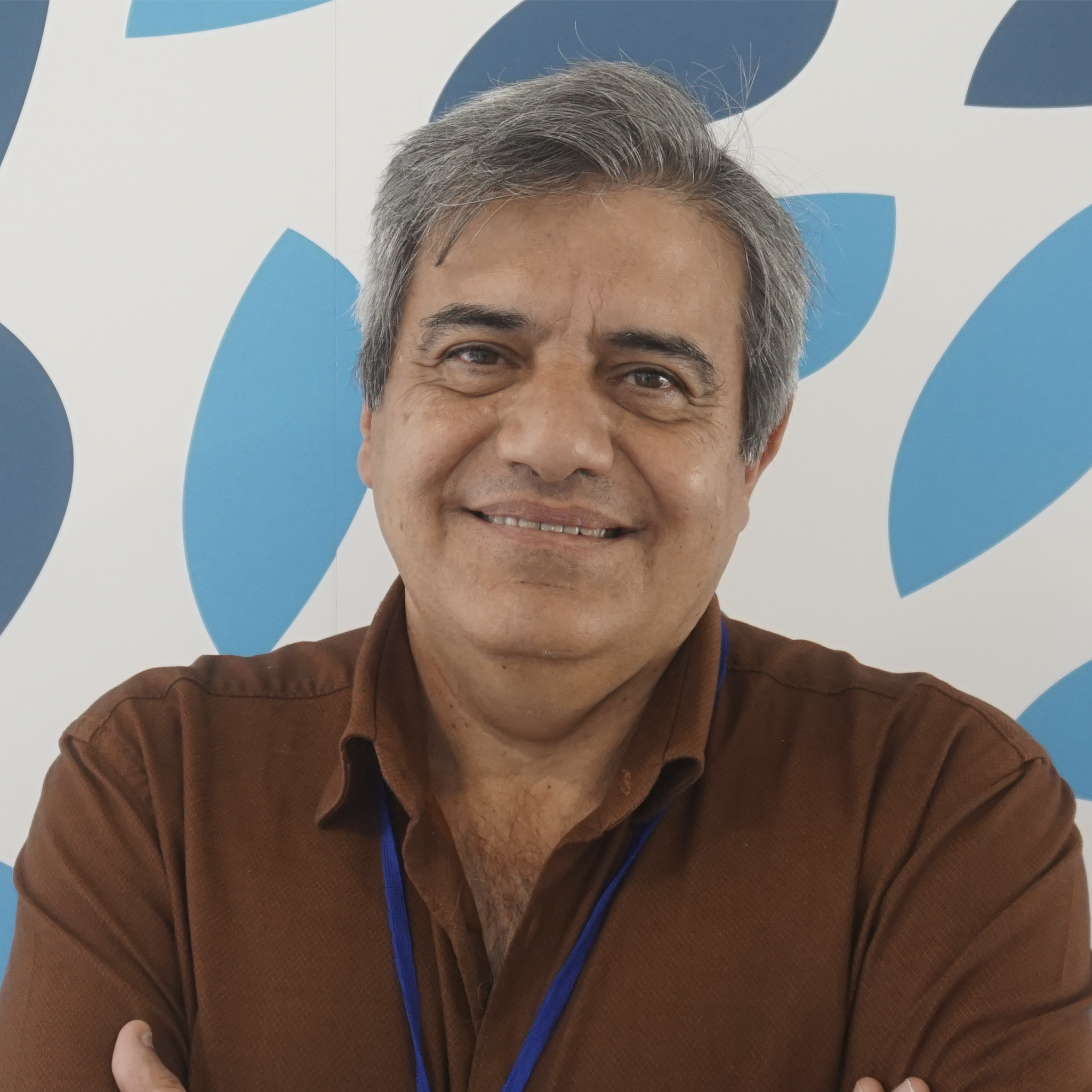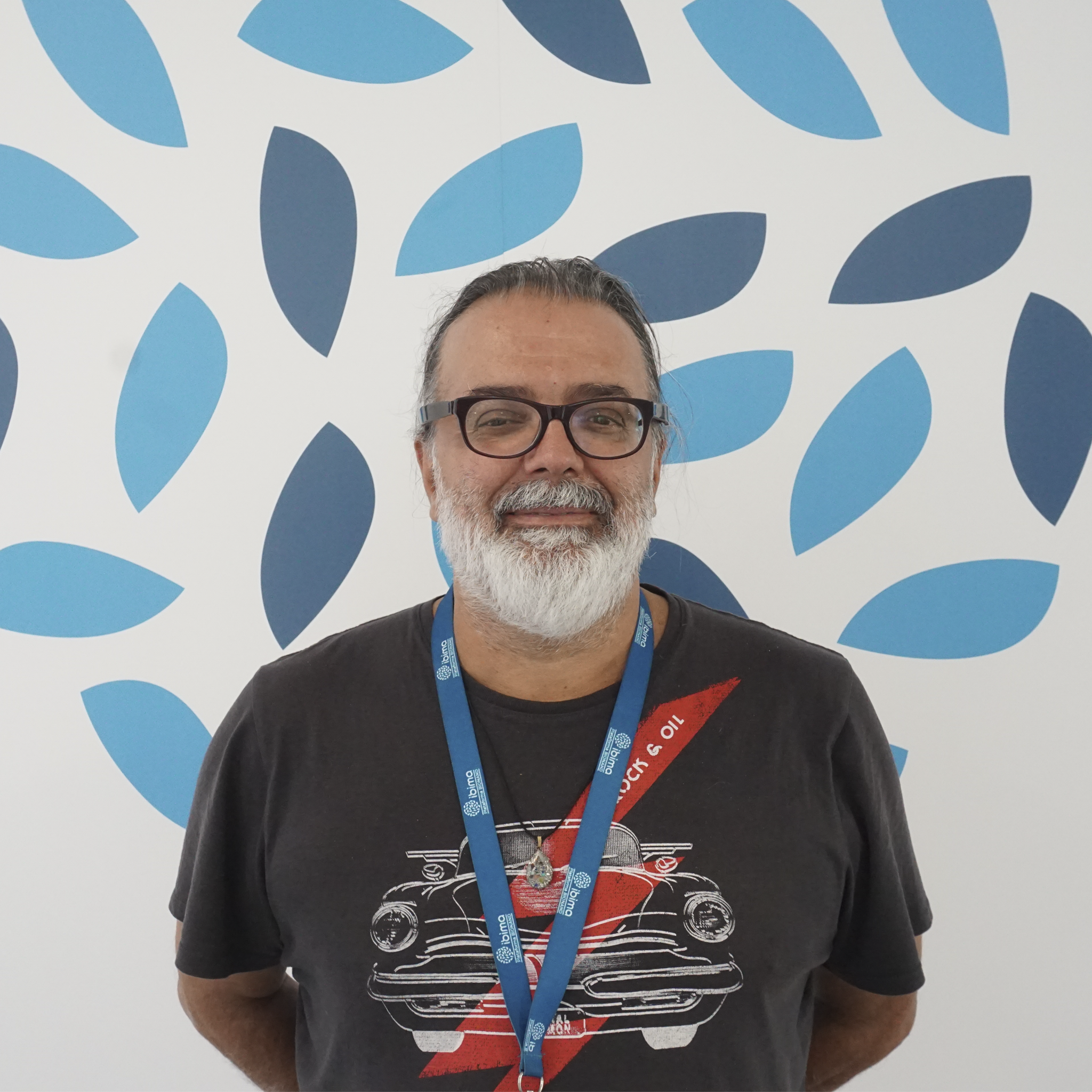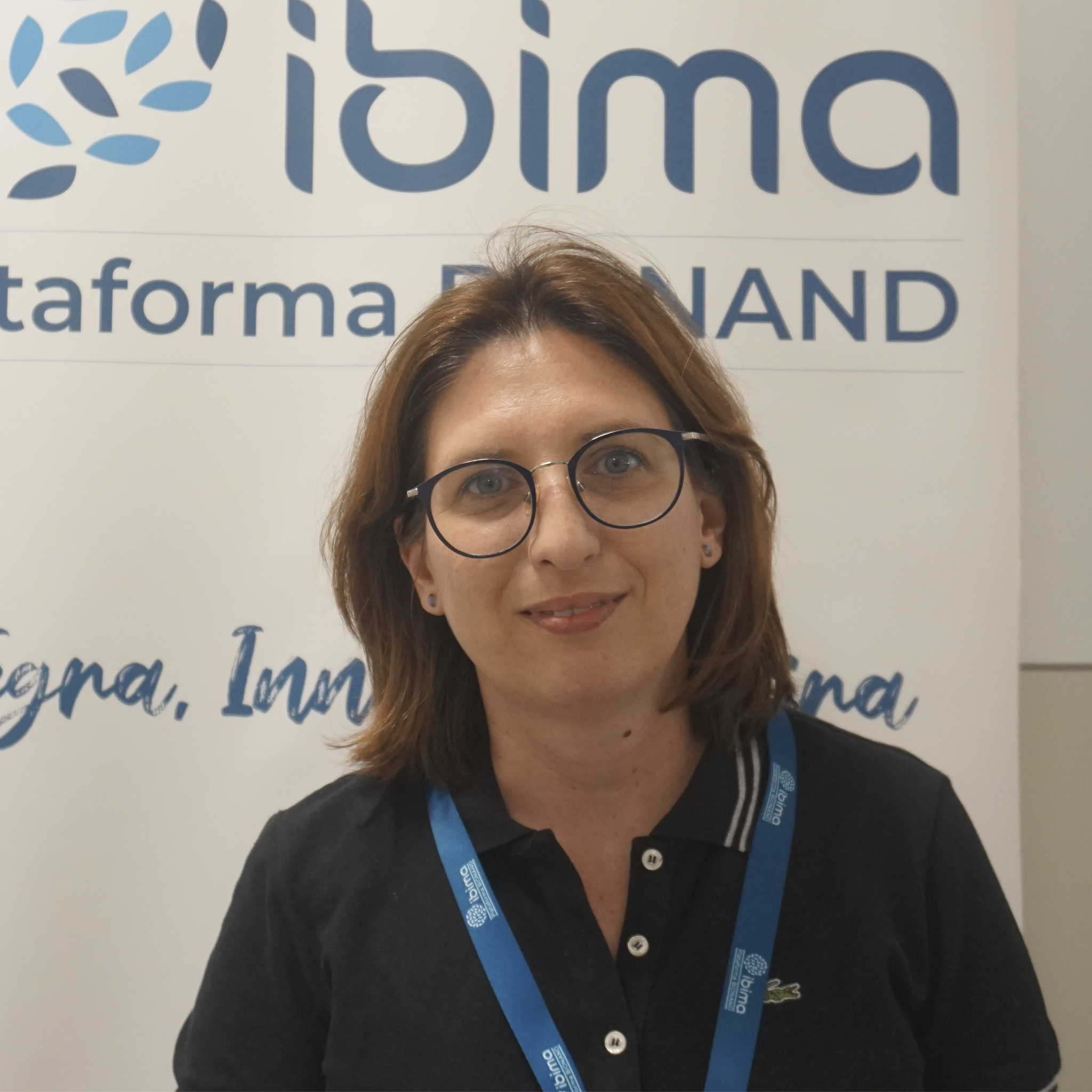Obesity, Diabetes and their Comorbidities: Prevention and Treatment
Lines of Research
01. Intestinal microflora, insulin resistance, and obesity.
02. Role of adipobiology in metabolic diseases.
03. Metabolic effect of bariatric surgery.
04. Environmental factors in the genesis of obesity and diabetes (brown adipose tissue and endocrine disruptors).
05. New celular and molecular mechanisms of inflammation in metabolic diseases: obesity, diabetes, and cancer
06. Genetic and epigenetic factors in the prevention, progression, and treatment of type 2 and gestational diabetes
07. PREDIMED PLUS Study.
08. Estados nutricionales alterados (enfermedad metabólica y malnutrición) y complicaciones. Biomarcadores y estudio de composición corporal.
09. Dietotherapeutic approach to obesity and cardiovascular disease: role of ketosis, intermittent fasting, physical exercise, and chronobiology.
10. Mitochondrial fitness in metabolic diseases.
11. Endocrine-metabolic complications of obesity
12. Analysis of response biomarkers to weight loss intervention. Precision medicine in the management of insufficient weight loss
13. Obesity and brain aging.
14. Immunity in metabolic diseases.
15. Role of pregnancy and breastfeeding in the development of metabolic diseases.
16. Dietary and pharmacological evaluation of obesity: effects of levothyroxine on body composition, metabolic biomarkers, and morphofunctional response in a personalized medicine context.
17. Physiological factors and mechanisms involved in weight regain. Therapeutic strategies for the prevention and management of weight regain.
- Research projects
- Clinical studies
- Scientific Publications
- Technological Offers
- Industrial property records
No results
The page you requested could not be found. Try refining your search, or use the navigation above to locate the post.
Ensayo global de fase 3, de grupos paralelos, aleatorizado, prospectivo, intervencionista, doble ciego y multicéntrico para investigar la eficacia y seguridad de finerenona frente a placebo, en adición al tratamiento estándar, en participantes con enfermedad renal crónica asociada a diabetes tipo 1
FRANCISCO JOSÉ TINAHONES MADUEÑO – ENSAYO CLINICO CON MEDICAMENTOS – III – BAYER HISPANIA S.L.
Ensayo Fase III, aleatorizado, doble-ciego, de grupos paralelos y controlado con principio activo para evaluar la eficacia, seguridad y tolerabilidad de Baxdrostat combinado con Dapagliflozina, comparado con Dapagliflozina sola en la progresión de Enfermedad Renal Crónica (ERC) en pacientes con ERC e hipertensión arterial. BaxDUO ARCTIC
FRANCISCO JOSÉ TINAHONES MADUEÑO – ENSAYO CLINICO CON MEDICAMENTOS – III – ASTRAZENECA FARMACEUTICA ESPAÑA S.A.
Ensayo fase IIb/III, aleatorizado, doble ciego, comparado con placebo para evaluar la seguridad y eficacia de la cotadutida en pacientes con esteatohepatitis no alcohólica no cirrótica con fibrosis. (Estudio PROXYMO-ADVANCE)
FRANCISCO JOSÉ TINAHONES MADUEÑO – ENSAYO CLINICO CON MEDICAMENTOS – III – ASTRAZENECA AB
Ensayo fase IIb, aleatorizado, doble ciego, multicéntrico, comparado con placebo para evaluar eficacia, seguridad y tolerabilidad de AZD2693 en pacientes con esteatohepatitis no alcohólica no cirrótica con fibrosis portadores del alelo de riesgo PNPLA3 rs738409 148M (FORTUNA)
FRANCISCO JOSÉ TINAHONES MADUEÑO – ENSAYO CLINICO CON MEDICAMENTOS – II – ASTRAZENECA FARMACEUTICA ESPAÑA S.A.
Ensayo clínico para valorar el Impacto de un suplemento nutricional en la Recuperación del Estadio Nutricional de pacientes ancianos con fractura Espontánea de cadera
JOSÉ MANUEL GARCÍA ALMEIDA – INV. CLINICA PRODUCTO SANITARIO COM. – No aplica – LABORATORIOS ORDESA, S.L.
Eficacia y seguridad de insulina icodec una vez a la semana en comparación con 100 unidades/ml una vez al día de insulina degludec, ambas en combinación con insulina aspart, en adultos con diabetes de tipo 1. Ensayo de tratamiento hasta conseguir el objetivo, de 26 semanas de duración, aleatorizado, multicéntrico, abierto, con control activo, de grupos paralelos y con dos brazos para investigar el efecto sobre el control de la glucemia y la seguridad del tratamiento con insulina icodec una vez a la semana en comparación con insulina degludec una vez al día, ambas en combinación con insulina aspart en adultos con diabetes de tipo 1, con una extensión de 26 semanas para investigar la seguridad a largo plazo. (ONWARDS 6)
FRANCISCO JOSÉ TINAHONES MADUEÑO – ENSAYO CLINICO COMERCIAL – III – NOVO NORDISK A/S
Eficacia del tratamiento con metformina en diabetes gestacional no controlada con dieta frente al uso de insulinoterapia. Estudio MeDiGes.
MARÍA JOSÉ PICÓN CESAR – ENSAYO CLINICO INDEPENDIENTE – IV – FUNDACION PARA LA INVESTIGACION DE MALAGA EN BIOMEDICINA Y SALUD
Eficacia de dos fórmulas de suplementación nutricional oral sobre parámetros metabólicos y de monitorización glucémica en pacientes en riesgo nutricional con diabetes mellitus tipo 2. PS19089 Estudio JGA-DIACARE-2018-01 Bi1
JOSÉ MANUEL GARCÍA ALMEIDA – INV. CLINICA PRODUCTO SANITARIO INDEP. – No aplica – FUNDACION PARA LA INVESTIGACION DE MALAGA EN BIOMEDICINA Y SALUD
Effect of levothyroxine as adjuvant therapy to a hypocaloric diet in the treatment of obesity: a randomized placebo-controlled trial
FRANCISCO JOSÉ TINAHONES MADUEÑO – ENSAYO CLINICO CON MEDICAMENTOS – III – FUNDACION PARA LA INVESTIGACION DE MALAGA EN BIOMEDICINA Y SALUD
Correlación en el mundo real del tiempo dentro del rango con los resultados notificados por los pacientes y el uso de recursos sanitarios en pacientes con diabetes en España: estudio CorrelaTIR
FRANCISCO JOSÉ TINAHONES MADUEÑO – RESTO DE ESTUDIOS OBSERVACIONALES CON MEDICAMENTOS – No aplica – RECA METANETWORK
Beneficial Effects of Xanthohumol on Metabolic Syndrome: Evidence from In Vitro and Animal Model Studies – INTERNATIONAL JOURNAL OF MOLECULAR SCIENCES
Gómez-Zorita, S; Proença, C; Fernández-Quintela, A; Moreno-Indias, I; Portillo, MP – 2024 – 10.3390/ijms252212434
Effects of the Ketogenic Diet on Strength Performance in Trained Men and Women: A Systematic Review and Meta-Analysis – NUTRIENTS
Vargas-Molina, S; Murri, M; Gonzalez-Jimenez, A; Gómez-Urquiza, JL; Benítez-Porres, J – 2024 – 10.3390/nu16142200
Integrative clinical, hormonal, and molecular data associate with invasiveness in acromegaly: REMAH study. – European journal of endocrinology
Sampedro-Nunez, Miguel; Herrera-Martinez, Aura Dulcinea; Ibanez-Costa, Alejandro; Rivero-Cortes, Esther; Venegas, Eva; Robledo, Mercedes; Martinez-Hernandez, Rebeca; Garcia-Martinez, Araceli; Gil, Joan; Jorda, Mireia; Lopez-Fernandez, Judith; Gavilan, Inmaculada; Maraver, Silvia; Marques-Pamies, Montserrat; Camara, Rosa; Fajardo-Montanana, Carmen; Valassi, Elena; Dios, Elena; Aulinas, Anna; Biagetti, Betina; Alvarez Escola, Cristina; Araujo-Castro, Marta; Blanco, Concepcion; Paz, de Miguel; Villar-Taibo, Rocio; Alvarez, Clara V; Gaztambide, Sonia; Webb, Susan M; Castano, Luis; Bernabeu, Ignacio; Pico, Antonio; Galvez, Maria-Angeles; Soto-Moreno, Alfonso; Puig-Domingo, Manel; Castano, Justo P; Marazuela, Monica; Luque, Raul M – 2024 – 10.1093/ejendo/lvae045
Precision or Personalized Nutrition: A Bibliometric Analysis – NUTRIENTS
Hinojosa-Nogueira, D; Subiri-Verdugo, A; Díaz-Perdigones, CM; Rodríguez-Muñoz, A; Vilches-Pérez, A; Mela, V; Tinahones, FJ; Moreno-Indias, I – 2024 – 10.3390/nu16172922
Ultrasound Cut-Off Values for Rectus Femoris for Detecting Sarcopenia in Patients with Nutritional Risk – NUTRIENTS
Roman, DD; Almeida, JMG; Guerrero, DB; Rolo, GG; Martín, A; Martín, DP; García-Delgado, Y; Guirado-Peláez, P; Palmas, F; Pérez, CT; Olivares, MG; Jiménez, MM; Lesmes, IB; Teomiro, CMA; Baena, JMG; Romero, LAC; Prior-Sánchez, I; García-Luna, PP; Pacheco, MG; Martínez-Olmos, MA; Alabadí, B; Alcántara-Aragon, V; Milla, SP; Folgueras, TM; García, AM; Molina-Baena, B; Barragán, HR; Gómez, PRD; Fernández, MR; Portilla, AJ; López-Gómez, JJ; Martín, NP; Madrid, NM; Eguinoa, AZ; Fernández, CP; Guerrero, MJT; Aguado, MR; Gimeno, CV; Martínez, ADH; Rodríguez, MN; Hernández, NCI; Medina, MD; Navarro, IG; López, FJV; Fernández-Pombo, A; Olveira, G – 2024 – 10.3390/nu16111552
Bone metabolism and inflammatory biomarkers in radiographic and non-radiographic axial spondyloarthritis patients: a comprehensive evaluation – FRONTIERS IN ENDOCRINOLOGY
Gómez-García, I; Ladehesa-Pineda, ML; Diaz-Tocados, JM; López-Medina, C; Abalos-Aguilera, MC; Ruiz-Vilches, D; Paz-Lopez, G; Gonzalez-Jimenez, A; Ranea, JAG; Escudero-Contreras, A; Moreno-Indias, I; Tinahones, FJ; Collantes-Estévez, E; Ruiz-Limón, P – 2024 – 10.3389/fendo.2024.1227196
Epigenetic profiles in blood and adipose tissue: identifying strong correlations in morbidly obese and non-obese patients – JOURNAL OF MOLECULAR MEDICINE-JMM
Cantarero-Cuenca, A; Gonzalez-Jimenez, A; Martinez-Núñez, GM; Garrido-Sánchez, L; Ranea, JAG; Tinahones, FJ – 2024 – 10.1007/s00109-024-02475-z
Interactions between the gut microbiome and DNA methylation patterns in blood and visceral adipose tissue in subjects with different metabolic characteristics – JOURNAL OF TRANSLATIONAL MEDICINE
Martínez-Montoro, JI; Martín-Núñez, GM; González-Jiménez, A; Garrido-Sánchez, L; Moreno-Indias, I; Tinahones, FJ – 2024 – 10.1186/s12967-024-05746-y
Predictive Factors of the Degrees of Malnutrition According to GLIM Criteria in Head and Neck Cancer Patients: Valor Group – CANCERS
Vílchez-López, FJ; González-Pacheco, M; Fernández-Jiménez, R; Zarco-Martín, MT; Gonzalo-Marín, M; Cobo-Molinos, J; Carmona-Llanos, A; Muñoz-Garach, A; García-Luna, PP; Herrera-Martínez, AD; Zarco-Rodríguez, FP; Galindo-Gallardo, MD; Miguel-Luengo, L; Fernández-Soto, ML; García-Almeida, JM – 2024 – 10.3390/cancers16244255
Ultrasound Muscle Evaluation for Predicting the Prognosis of Patients with Head and Neck Cancer: A Large-Scale and Multicenter Prospective Study – NUTRIENTS
Fernández-Jiménez, R; García-Rey, S; Roque-Cuéllar, MC; Fernández-Soto, ML; García-Olivares, M; Novo-Rodríguez, M; González-Pacheco, M; Prior-Sánchez, I; Carmona-Llanos, A; Muñoz-Jiménez, C; Zarco-Rodríguez, FP; Miguel-Luengo, L; Boughanem, H; García-Luna, PP; García-Almeida, JM – 2024 – 10.3390/nu16030387
No results
The page you requested could not be found. Try refining your search, or use the navigation above to locate the post.
No results
The page you requested could not be found. Try refining your search, or use the navigation above to locate the post.
Members
-
Researcher in ChargeSerá Investigador de este nivel los Investigadores Responsable que lideren un grupo de investigación del Instituto y sus Co-IR. Esta categoría puede incluir investigadores muy excepcionales en su disciplina.

Francisco José Tinahones Madueño
-
Co-investigator in ChargeSerá Investigador de este nivel los Investigadores Responsable que lideren un grupo de investigación del Instituto y sus Co-IR. Esta categoría puede incluir investigadores muy excepcionales en su disciplina.

Manuel Macías González
-
Co-Investigadora ResponsableSerá Investigador de este nivel los Investigadores Responsable que lideren un grupo de investigación del Instituto y sus Co-IR. Esta categoría puede incluir investigadores muy excepcionales en su disciplina.

Isabel Moreno Indias
-
Investigador/as SéniorSerán aquellos que tengan una actividad investigadora de al menos 5 años en la etapa posdoctoral. Estos investigadores estarán adscritos a un Grupo de Investigación liderado por un Investigador Responsable. Las funciones serán las que le tenga asignadas su IR.
Pueden liderar una línea de investigación de alguno de los grupos de investigación del Instituto, con financiación competitiva propia, y con potencial para llegar a convertirse responsable de un grupo de investigación.
No results
The page you requested could not be found. Try refining your search, or use the navigation above to locate the post.
-
Investigador/a Asistencial Colaborador/aSerá Investigador Asistencial Colaborador el Investigador que no reúne la consideración de Investigador Posdoctoral. Estarán adscritos a un Grupo de Investigación liderado por un IR. Las funciones serán las que le tenga asignada su IR.
No results
The page you requested could not be found. Try refining your search, or use the navigation above to locate the post.
-
Investigadores/as posdoctorales y/o juniorEsta etapa posdoctoral estará restringida a Investigadores del Instituto que tengan el título doctor y no contemplados en los perfiles posteriores. Durante su etapa posdoctoral pueden llegar a liderar proyectos de I+D+i como Investigadores Principales, aunque aún no hayan establecido un nivel significativo de independencia. Además, pueden tener actividades de docencia y/o asistencial más allá de su trabajo de investigación.
No results
The page you requested could not be found. Try refining your search, or use the navigation above to locate the post.
-
Investigadores/as predoctorales y/o en formación
Los investigadores predoctorales y/o en formación serán aquellos investigadores que realizan investigaciones bajo supervisión en una línea de investigación orientada a la resolución de problemas de salud. Incluye aquellos investigadores que están cursando un doctorado (incluyendo a los contratados Río Hortega)
No results
The page you requested could not be found. Try refining your search, or use the navigation above to locate the post.
-
Technical staff
Los investigadores predoctorales y/o en formación serán aquellos investigadores que realizan investigaciones bajo supervisión en una línea de investigación orientada a la resolución de problemas de salud. Incluye aquellos investigadores que están cursando un doctorado (incluyendo a los contratados Río Hortega)
No results
The page you requested could not be found. Try refining your search, or use the navigation above to locate the post.
